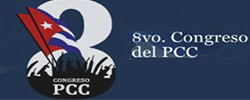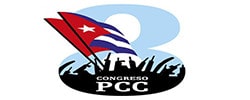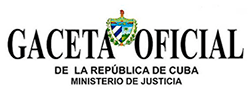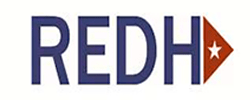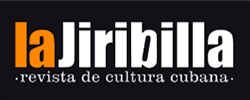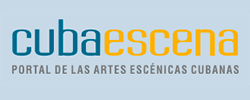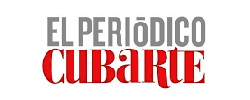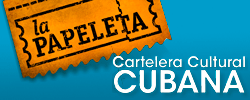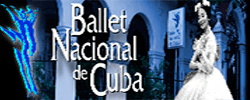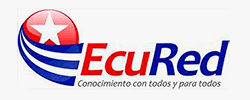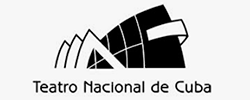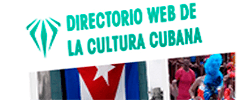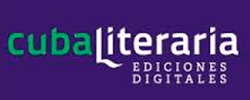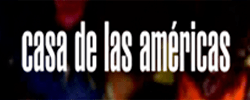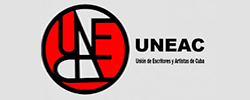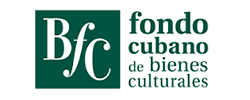Reading policy in Cuba:
Since 1959 in Cuba there is a policy in favor of reading that is based on conceiving this cultural practice as a social right that enriches the life of all citizens from their childhood and develops their intellectual, cognitive and ethical capacities, especially in a society that, bets for the rights to education, culture and personal improvement.
This policy has been based over 60 years on the creation of laws that favour it and on which the practice of publishing houses, libraries, bookstores and other institutions that favour reading in the country is based.
In the publishing area, the state subsidizes the annual production of some 500 new books and reprints of the 188 existing publishing houses and reading is subsidized by the application of a price policy aimed at encouraging the average book price per capita to fall from year to year.
Through this policy, although the aim is to lower publishing costs, the price at which books are sold to the public and the application of special discounts during International Book Fairs and other promotional spaces during the year, means that books are acquired at a price that is much lower than the total cost of their production.
There is also a Law on Libraries that protects the preservation of the national editorial heritage (including in digital format) and provides the main libraries in the country with funds from the editorial production of each period. This law is materialized in the delivery of three copies of each book produced to National Cuban Library José Martí, two to Provincial Library Rubén Martínez Villena in the capital and another two to the Elvira Cape Library in Santiago de Cuba, in the east of the country.
In addition, each provincial library benefits from this decree in the amount of one copy. Similarly, the annual distribution of new publications, which is organized in each province by the Provincial Directorates of Culture and Provincial Book and Literature Centres, means that everything published can reach every corner of the nation and not just be parked in the capital.
Main actions and results:
- Creation of the space El libro del mes (The book of the month) that during a year presented 12 books of high literary hierarchy in printed format, e-book and apk in all the country with great repercussion of public and sales. It was also replicated in libraries in all provinces.
- Celebration of the 28th International Book Fair throughout the country with the consequent increase in sales, sales policy.
- Celebration of the Mountain Book Festival, which declined in some provinces due to organizational problems.
- The Cuban Book Institute's regular events, such as Sábado del libro, El autor y su obra, Libro a la carta, El elogio oportuno and Páginas inéditas, among others.
- During the year, the Cuban National Library maintained its system of national contests: Leer a Martí, Puerta de Espejo and others to stimulate reading from early childhood.
- Strong alliance with MINED to start work on reading measurement in primary schools and promotion among students of the space The book of the month.
- Celebration during the International Book Fair of the day "Leer a Verne" at the National and Provincial Library Rubén Martínez Villena in the capital, with the objective of rescuing the reading of this LIJ classic among young people.
- Celebration of the tenth anniversary of the Cuban Book and Reading Observatory and the start of new actions in public and school libraries in support of the National Reading Program.
- Technical visits by CERLALC and advice for the National Reading Program.
Definition of concepts for the national program for reading.
The National Program for Reading is a project in constant construction, flexible and participative.
It proposes the coordination of the efforts of all the organizations, institutions, groups and persons of the country interested in promoting books and reading in Cuba.
It is defined as the set of policies, programs, campaigns and strategies that are carried out to promote the taste and pleasure of reading, through the formation and development of reading habits achieved, under the structure of diverse coordinated actions among its different actors and managers, designed to achieve medium and long term objectives and covering the entire Cuban population.
Mission: "Only by creating a country of readers are we going to found a more informed, socially inclusive, democratic, developed and identity-conscious society".
Vision: The National Program for Reading explores, imbeds and disseminates in the country the habits of reading as a way to guarantee the development of the Cuban population towards higher levels of spending their time in an instructive, recreational and spiritual way.
General objectives:
The general objectives of the National Reading Program are:
- To strengthen the humanistic-cultural value and the social significance that books and reading should have in Cuban society today and in the future.
- To promote a taste for reading from an early age among children, adolescents and young people.
- To help educated Cuban readers to find books and services linked to books that can increasingly satisfy their expectations.
- To coordinate actions to promote reading, integrating all the work areas of the BNJM, the SNBP and the CIED and other social executors in order to contribute to stimulate the habit of reading in the Cuban population.
- To strengthen the place and role of schools, libraries and other social institutions linked to the promotion of books and reading in the context of national life.
- To ensure that the introduction of new technologies in the country does not compete, but rather contributes to the promotion of a taste for reading.
- To achieve the active and creative incorporation of the community and the family into the actions of the Programme.
- To encourage the active and creative participation of the media in the development of the National Reading Programme.
- To train participants and promoters of the National Reading Programme with advanced techniques and approaches that will facilitate the achievement of the proposed objectives.
- To coordinate and develop social research from the Cuban Book and Reading Observatory and other bodies to evaluate the progress of the Program and enrich it, as well as to determine reading levels in various student populations or sectors.
- To identify, coordinate and manage the resources involved in the Program's actions and guarantee their rational use, in accordance with the country's budget for the development of the program.
- Cuban Book and Reading Observatory shall develop instruments for evaluating, monitoring and controlling the program in libraries and bookstores, as well as the work of other reading mediators.
Regulatory conditions:
- The National Reading Program in Cuba is based on the following normative documents:
- Words to the intellectuals pronounced by Commander in Chief Fidel Castro in June 1961 in the José Martí National Library.
- Theses and Resolutions of the Congress of the PCC
- The ICL's editorial policy document.
- Decree-Law no. 271 for libraries of Republic of Cuba.
- Decree 265 , on May 20, 1999 (Legal Deposit of Cuban Bibliography).
- PCC guidelines.
- Cultural Policy Priorities, Ministry of Culture, December 29, 2016.
- Speech by the President of the Councils of State and Ministers Miguel Díaz-Canel Bermúdez, at the closing of the IX Congress of the Union of Writers and Artists of Cuba.
13. Culture-Tourism Program
General Objective
To promote the artistic and literary dimension of culture in the development of tourism in Cuba.
Actions in progress
I-Strengthen the Culture-Tourism commissions at all levels.
- Beginning of the internal commissions of Culture and Tourism. January 2019. Monthly frequency
- Reactivation of the National Culture-Tourism Commission. January 2019. Bimonthly frequency with the presence of the ministers every six months.
- In the case of the provinces, they are carried out with bimonthly frequency.
II-To extend the social object of the Paradiso Cultural Tourism Promotion Agency.
- In fact, the aim is to diversify and enrich the cultural proposals it works on in each of its four market lines (Academic, Events, Optional and Programmes).
- Need to authorize commercialization with the North American market.
- The insertion of the Agency in the Internal Commission Culture-Tourism has allowed a more horizontal dialogue with the institutions of the system.
III-To insert the institutions of culture in the system of international marketing of tourism.
- The Collaboration Department of the Ministry of Culture is working on a joint proposal to respond to this action on a strategic level.
- Proposals prepared jointly with the Ministry's Directorate of Cultural Industries and Services and the Companies in the Culture System were submitted to the Working Group for Increasing Exports of Goods and Services to Cruises.
- A greater participation in international, tourist and commercial fairs with the participation of top level artistic talent is foreseen for the year 2020, taking advantage of the tours of our companies in the host countries.
- Beginning of the negotiation process with hotel chains, especially Gaviota, to optimize and encourage the presence of artists at the border.
- Establish a system of evaluation and permanent control over compliance with Guideline 216 of the Economic and Social Policy.
- The conciliation between the two ministries of the Policy for Implementation of Guideline 216 is in the process of being concluded.
- Establish a system of permanent evaluation and control of compliance with Economic and Social Policy Guideline 214.
- Update the content of the General Guidelines for Culture-Tourism Relations, signed on 3 December 2015.
It should respond to the real context of the relations between both ministries and their institutions, as well as to the proposals made by the members of the Culture-Tourism Commission of UNEAC during the meetings of the Working Group created for the 9th Congress of the organisation. The updating process should be initiated after the Congress.
Other actions in progress
- Preparation of the proposal to resume the 2020 Varadero International Festival in Matanzas and the Havana + Festival to be held from November 7 to 11, 2019, in Havana. Both will be held annually.
- Participation in the Working Group for the Increase of Exports of Goods and Services to Cruise. Submission and review of proposals.
- Design and execution of a cultural event with American artists in Havana. We are working together with the Kennedy Center to carry it out in the first semester of 2020. Similarly, the intention is to take up "Arts of Cuba" as an experience to be developed in 2021. Both of them will take place every two years, alternating their realization.
- Results of the participation in FITCUBA 2019
An unprecedented presence at the Fair was achieved by taking advantage of the spaces offered by MINTUR, which will allow us to negotiate more favorably by 2020 - The participation of 11 institutions of the system in an orderly manner made it possible to make our products and services visible from a variety of options offered to the Ministry of Tourism.
In figures:
- More than 367 participating artists.
- Live presentations ( La Cabaña): 23 16 (BWI) 4 (EGREM) 3 (Turarte)
- Contracted Artistic Presentations: 4 (EGREM)
- Promotional artistic presentations: 16 (BWI)
- Record presentations: 7 (EGREM)
- Contracts won: 25 (Paradiso): 15 clients or potential clients and 10 suppliers
- Negotiations: 17 - 6 (BWI) 11 (EGREM)
- Bilateral meetings and exchanges: 53: 4 (EGREM) 5 (MINCULT) 46 (Paradiso)
- The groups with a large attendance were well accepted despite the fact that their presentations took place at midday.




